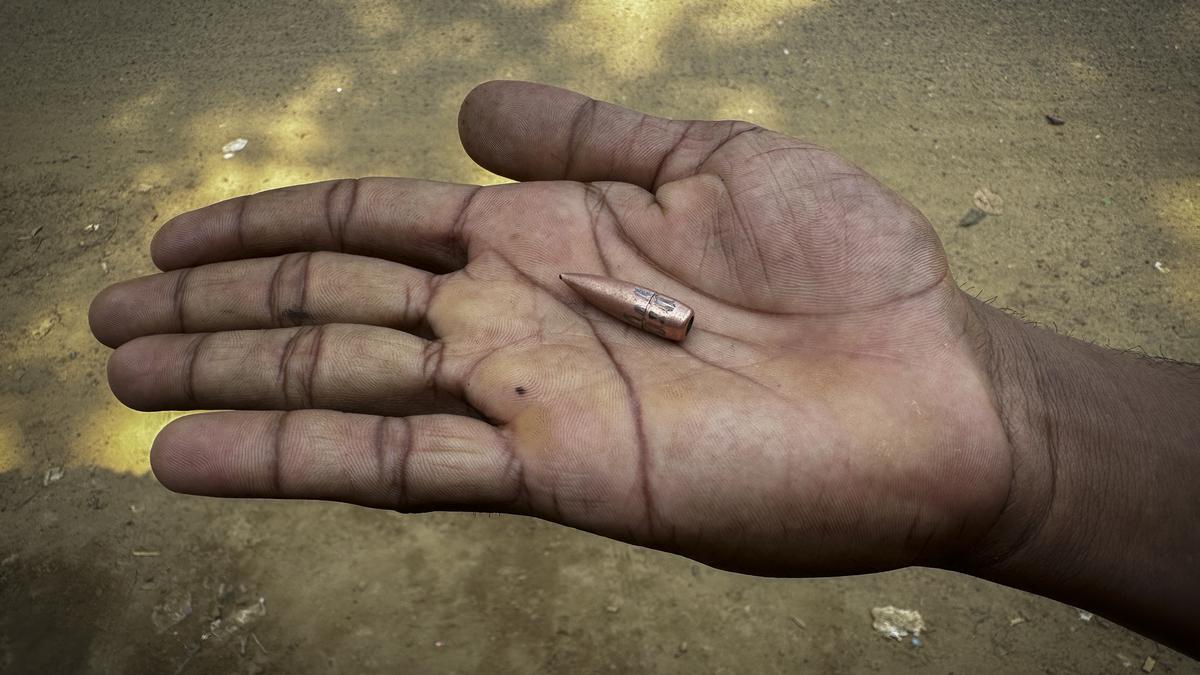
Myanmar’s civil war and India’s interests
The Hindu
The resistance movement against military rule in Myanmar gains strength, impacting ethnic relations, Indian projects, and Chinese influence.
In February 2021, when the Myanmar military leaders ousted the elected government of Aung San Suu Kyi, they anticipated a resistance movement that would subside in a few months. Three years later, the opposition to military rule gains in strength. Ethnic Armed Organisations (EAOs) and the People’s Defence Forces control many towns in different parts of the country. A few weeks ago, the Arakan Army captured Paletwa in the Chin State which lies on Myanmar’s western borders with Bangladesh and India.
The fall of the town of Paletwa has altered the dynamic between the Chin and the Arakan ethnic groups. A majority of Paletwa’s residents belong to the Chin ethnic community, and they see their town as an integral part of their homeland. On the other hand, some in the Rakhine State, previously known as Arakan, contend that the township was historically part of the Arakan Hill Tracts during colonial rule and should have been part of their province. There have been instances, prior to the coup, when Chin ethnic organisations expressed displeasure with the Arakan Army’s operations in Paletwa.
In the recent past, ever since the Chin armed groups and the Arakan army have been fighting the Myanmar military, they have refrained from forcefully ascertaining their respective views of provincial borders. Nonetheless, to maintain peace and order, it is imperative that the Chin and Arakan groups agree on an inclusive framework for the governance of Paletwa and adjoining areas. For an effective fight against the military, the EAOs need to improve inter-ethnic solidarity by creatively accommodating each other’s perspectives on ethnic boundaries. Finding an inter-ethnic compromise on settlements such as Paletwa can be particularly challenging. Paletwa’s location on the western border makes it a good launchpad for the Arakan Army to conduct its operations against the military. Paletwa is a commercial town on the Kaladan River, and therefore, any armed group with a significant presence in the town would benefit from the economic activity in the region.
The developments in Paletwa will also impact the Indian government’s Kaladan Multimodal Transit Transport Project (KMTTP) in Myanmar, which has already faced significant delays. The Kaladan project was aimed at addressing the geo-economic and geo-political challenges of northeast India. The partition of the subcontinent and the subsequent hardening of borders converted northeast India into a landlocked region. Transporting goods to and from northeast India via the narrow Siliguri corridor is an expensive affair, and in a worst-case scenario with China, there is a possibility of movement along the corridor being adversely affected. Therefore, the Kaladan project was conceptualised as an alternative route that gives northeast India access to the sea.
India and Myanmar signed the framework agreement on the Kaladan project in 2008. The operationalisation of the project was delayed because of rugged terrain, inadequate inter-departmental coordination, political instability and security challenges in Myanmar. While the Sittwe port and inland water terminal at Paletwa have been completed in the past few years, road construction is facing challenges due to the prevailing security situation in Myanmar. For expeditious implementation, the attitudes of the local ethnic organisations towards the Kaladan project should be factored in. The people of Mizoram and their co-ethnics across the border in Chin State are interested in the expedited completion of the Kaladan project, as it will spur economic activity in the region.
However, there is a perception in India that the Arakan Army is not favourably disposed to the Kaladan project. Prior to the coup, numerous reports indicated that India and Myanmar have launched coordinated operations against Arakan Army units that were operating close to India’s borders near Mizoram and threatening the Kaladan project. In 2019, five Indian workers working on the project were kidnapped, reportedly by the Arakan Army. While all the workers were released, one Indian national died in the custody of kidnappers due to a cardiac arrest.
The Arakan Army, along with the Myanmar National Democratic Alliance Army and the Ta’ang National Liberation Army, is part of the Three Brotherhood alliance, which some claim has China’s support. The alliance has pledged to protect Chinese investments in Myanmar. There are reports which suggest that the Arakan Army receives considerable funding and military equipment from China. If such reports are true, there will be concerns in Delhi that Beijing is using armed groups to slow down India’s connectivity projects in Myanmar.











